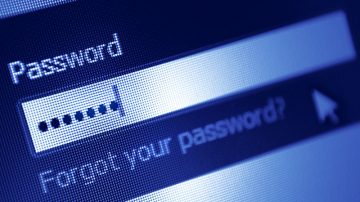5 Tips to Ensure That Servers Are Protected Against Hackers

If you’re running a business, part of it is definitely online. All of the online data that you need to run your operations is stored on a server. There are all sorts of servers out there and various ways to host your data. However, just like everything in the cyberworld, servers can be subject to hacking, too. Therefore, you have to pay attention to server security if you want to protect your data from malicious attacks. In this entry, we will go through the main tips on how to secure a server. But please bear in mind that you should definitely address a professional for individual tips and tweaks for your business.
Table of Contents
1. Choose dedicated hosting when you can
To start, we should probably pay attention to the basics. When it comes to server security, we have to look at our primary choices. That is to say, are you using dedicated hosting or shared hosting? The names are quite self-explanatory. If you have a dedicated server, it means that only you are using that server, and you have all the disk space and bandwidth for yourself. With shared hosting, you are sharing some server with some other parties. While shared hosting is cheaper than dedicated hosting, it might have some security limitations.
When you use dedicated hosting, you are in charge of your server security, and there are less attack vectors that could be exploited. Of course, it also means that you need an IT team that could control the server security for you, but when you don’t need to share, there are fewer chances to get infected with malware. Therefore, any security expert would tell you that it is better to choose dedicating hosting as opposed to the shared one.
2. Improve server password security
Alright, let’s say you have your own dedicated hosting service, what’s next? How to secure your dedicated server? You clearly need to start with a strong password. At the base, server security is no different from your general cyber security. Therefore, creating strong passwords and changing them regularly is extremely important.
If your business has a dedicated server, it will first have default passwords provided by your host. However, default passwords are the same across all the servers provided by the host. Hence, to improve your server security, you need to change the default passwords.
We are sure that your IT team knows what constitutes a strong password, but if you want to find out more by yourself, here’s our entry on password security. The bottom line is that NO ONE should ever use regular words or number sequences to secure their servers. For instance, serverpassword123 is probably the worst thing someone could come up with. It’s very easy to guess, and hackers probably wouldn’t even need to brute-force it.
Let’s not forget that cybercriminals have gadgets and programs that help them hack into servers and databases. Therefore, the stronger your password is, the better. It should be a long random sequence of capital and lower-case letters, with numbers and special characters. It is also necessary to renew those passwords regularly, and even professionals need help with that.
Needless to say, there are professionals who help professionals! So, to make password renewal and generation easier, you can employ tools like Cyclonis Password Manager that create and store strong passwords for you in their own encrypted vault. In fact, you can use it to improve your overall cybersecurity too, as the ways to apply the tool are endless.
3. Don’t forget software updates
We repeat it all the time, but trust us when we say this: Updates matter. Operating systems don’t just work within a vacuum. They are constantly updated and improved, and ensuring server security requires you to update your software regularly. Outdated software may have certain vulnerabilities that can be exploited by cybercriminals when they try to access your servers. Updates fix those vulnerabilities, and makes your server safer.
What’s more, it is recommended to update not only your server software, but your database settings, too. For example, each server user has certain privileges, and by minimizing them, you can prevent potential hacking incidents. Also, it is a good idea to remove unnecessary data that is clogging your server.
4. Improve VPS security
VPS or virtual private server is similar to dedicated hosting because it is a dedicated service. However, while a dedicated server is often a physical server, VPS is a virtual machine that is sold by Internet hosting service.
There are multiplay ways to ensure virtual server security, but we would like to mention one important aspect here: network ports. A network port is like a door to your server. While most of these doors are protected by firewalls, you can still walk that one extra mile to protect your server by modifying firewall settings.
For example, you can block all traffic except for the one you need or expect. Also, you can filter the traffic that reaches you or leaves your server. By filtering both, inbound and outbound traffic, you make it harder for hackers to remain undetected.
5. Employ malware protection
If there’s software, it’s always susceptible to malware infection. Since dedicated servers can also run apps, they are targeted by all sorts of malware. Luckily, hosting providers often offer antimalware scanning services that help you protect your server from potential threats.
You also need to remain vigilant and look out for odd or unexpected behavior within the server. If you or your employees notice anything suspicious, inform your IT team at once. Also, it would be a good idea to give a test run for the software you want to install on your server on another device, just to see how it works or if there could be potential glitches.
Needless to say, the things we have covered in this entry are just a tip of an iceberg. Please do not hesitate to hire a professional IT team to look after your servers, and we would encourage to communicate with your hosting provider regularly, as they could also give you useful server security tips.








